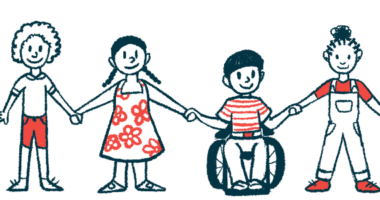Blood cancer treatments may help people with hard-to-treat CAD
Approved therapies found partially effective in 2 patients in study

Two approved blood cancer treatments, daratumumab and bortezomib, were each partially effective at reducing signs of cold agglutin disease (CAD) in two people with hard-to-treat cases of the autoimmune disorder, a study showed.
These two therapies, alone or in combination, also were found to effectively treat five of six people with other types of autoimmune hemolytic anemia (AIHA), a group of rare conditions that includes CAD.
The overall response rate to these blood cancer treatments among the eight patients was higher than 85%, and most — six patients, including both individuals with CAD — experienced no or mild side effects.
“The combination of clinical response with long-lasting duration and a strong safety profile supports the promising nature of bortezomib and daratumumab in refractory [hard-to-treat] AIHA,” the researchers wrote, noting that “these findings could help guide clinical management for refractory AIHA moving forward.”
The study, “Bortezomib and daratumumab in refractory autoimmune hemolytic anemia,” was published in the American Journal of Hematology.
Now testing blood cancer treatments for CAD
In AIHA, the immune system produces self-reactive antibodies that attack and destroy red blood cells, leading to anemia, among other symptoms. Characterized by low levels of red blood cells or hemoglobin — the protein in red blood cells that transports oxygen throughout the body — anemia typically results in weakness and fatigue.
In most cases of the disease, these self-reactive antibodies bind more easily to red blood cells at warm temperatures, referred to as warm AIHA. When they are triggered by cold temperatures, it is called cold agglutin disease or CAD, and when both warm and cold temperatures are optimal for antibody binding, it is referred to as mixed AIHA.
Rituximab (sold as Rituxan in the U.S. and MabThera in Europe, with generics available) is the standard AIHA treatment. It is designed to trigger the death of antibody-producing immune B-cells by binding to the protein CD20. While not approved for CAD, it is commonly used off-label as a first-line therapy.
Only about half of patients respond to rituximab, however, and its effects last about a year on average.
One explanation for rituximab’s lack of effectiveness in some patients is the sustained presence of long-lived self-reactive antibody-producing plasma cells. Plasma cells are a mature type of B-cell that produces large quantities of antibodies. Because long-lived plasma cells lack CD20, they are not affected by medicines like rituximab.
Two blood cancer treatments do have the potential to kill these long-lived plasma cells and therefore be effective in hard-to-treat AIHA. They are bortezomib, marketed as Velcade, and daratumumab, prescribed under brand name Darzalex. Both medicines are approved to treat myeloma, a cancer of plasma cells.
Daratumumab has been shown to be effective in some CAD patients who failed to respond to rituximab. In a previous Phase 2 clinical trial (NCT01696474), CAD patients who relapsed after standard treatment were found to benefit from a short-term course of bortezomib.
Few side effects found with bortezomib and daratumumab
Now, researchers at the Mayo Clinic, in Minnesota, reviewed the medical records of eight adults with AIHA treated with either daratumumab or bortezomib, or both, at their institution between 2012 and 2022. The five men and three women ranged in age from 34 to 78.
Two patients had CAD, six were diagnosed with warm AIHA, and one had a mixed form. All but one also had a secondary blood disease, including cancers like lymphoma or leukemia.
Six of the patients (67%), including the two people with CAD, had received at least three lines of therapy a median of 2.1 months (range, 1-5 months) before starting daratumumab or bortezomib. Both CAD patients showed poor responses to previous treatment with rituximab and bendamustine, in addition to either prednisone or ibrutinib.
The patients were followed for a median of 10.4 months after the start of daratumumab/bortezomib treatment (range, four months to 3.5 years).
Neither of the CAD patients was dependent on blood transfusions, while five of the other six patients were.
One CAD patient, a 73-year-old man, received daratumumab for 15 months. The other, a 69-year-old woman, had been treated with bortezomib for 30 months, or 2.5 years.
Both patients showed a partial response to treatment, indicated by hemoglobin values of more than 10 but less than 12 — the lower limit of the normal range — or an increase of more than 2 grams/deciliter, with or without normalization of markers of red blood cell destruction, or hemolysis. The two individuals were still responding to treatment at their last follow-up.
The therapies were generally well tolerated by both patients, resulting in only mild adverse events: injection side reaction in the daratumumab-treated man and dizziness in the woman given bortezomib.
Overall response rate of 88% with blood cancer treatments
Among the other six patients, three received bortezomib, while one was treated with daratumumab and two — one of them the mixed AIHA patient — were given both therapies.
With a treatment duration ranging from one to four months, all but one of these patients achieved a complete response, defined as a normalization of levels of both hemoglobin and hemolysis markers.
Overall, the response rate in all eight patients was 88%.
Future prospective studies will hopefully continue to corroborate these findings and allow for more widespread use of impactful therapy in refractory [hard-to-treat] AIHA.
Four of the six patients with AIHA forms other than CAD experienced no adverse events. In the remaining two patients, side effects included moderate nausea and vomiting, and severe irregular heartbeat.
The patient whose disease failed to respond to a combination of bortezomib and daratumumab had warm AIHA and Waldenström macroglobulinemia, a rare white blood cell cancer. This 78-year-old man, the oldest of the patients, subsequently died from health complications unrelated to treatment.
“This study demonstrates the efficacy of plasma cell-directed therapies, bortezomib, and daratumumab, in the treatment of refractory AIHA patients,” the researchers wrote, adding that the results “highlight that these agents are generally well tolerated and can provide long-lasting remissions.”
“Future prospective [forward in time] studies will hopefully continue to corroborate these findings and allow for more widespread use of impactful therapy in refractory AIHA,” the researchers added.









